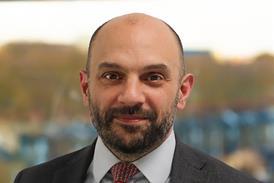More work must be done outside the courtroom if the Crown Prosecution Service is to achieve excellence.
Michael Fuller’s thematic review of the quality of Crown Prosecution Service advocacy makes uncomfortable reading for those tasked with ensuring that the guilty are convicted and the innocent acquitted. The introduction notes: ‘There has been little progress since my last report.’
The report describes advocates conducting ‘unstructured cross-examination’, ‘failing to put the prosecution case’ and ‘being unaware how to introduce a no-comment interview’. Several reasons are suggested for these failings: a lack of investment in high-quality advocacy training; insufficient opportunities to observe advocacy in court; and a failure to properly implement a mentoring scheme. Progress since recommendations made in a 2012 report has been poor, the report concludes, and even where changes were made it is difficult to ascertain any effect on the CPS from a business perspective.
A CPS spokesman responded: ‘We dispute criticism of the quality of CPS advocates and are disappointed that this finding has been made when the inspectorate undertook no observations of advocates in action.’
It is perhaps significant that this report spans a period during which the CPS was required to reduce spending by 25%. Lawyers who were employed as full-time advocates had to spend more time on office-based tasks, reducing their opportunities to observe advocacy in court.
The public needs high-quality advocates prosecuting cases. In his 2014 review of criminal advocacy, Sir Bill Jeffrey stated: ‘Effective advocates simplify rather than complicate… and thereby can contribute to just outcomes, and save court time and public money.’
Fuller’s assessment of the value for money the CPS offers is based both on the quality of its advocacy and the amount of money saved by retaining briefs ‘in-house’ – rather than instructing advocates (usually, but not exclusively) from the self-employed bar. But the value for money that the CPS delivers needs to be defined more widely.
The public obtains maximum value from a justice system where prosecuting authorities: identify charges correctly at first review; ensure defendants are provided with evidence (and can therefore be advised of the case against them) at the earliest opportunity; and where trials are conducted in the shortest and most-effective fashion. In his recent review of the efficiency of the criminal justice system, Sir Brian Leveson said: ‘In my view, getting it right first time is the absolute priority… this will impose additional burdens on the police and CPS.’
For this to be achieved, the CPS must divert more resources to work outside the courtroom, delivering benefits to the public, both in terms of money saved on unnecessary hearings and trials, and in reducing the uncertainty of victims of crime owing to backlogs in the system.
With a finite amount of resource available, the CPS faces a stark choice: does it ensure that there is a sufficient number of expert lawyers out of court reviewing cases and making the correct decisions the first time, or does it invest in its advocates, to ensure that its advocacy strategy is implemented as planned?
This is not to say an organisation cannot do both well. If the CPS is to achieve excellence and value for money in all areas of its service, it needs to be properly resourced. Protecting resources by scaling back regular training for advocates is a false economy, which creates a burden on the public purse and risks the guilty being acquitted. Working with independent advocates (from both branches of the provision), who undergo regular training (paid for from their own pocket) and observe advocacy every day, and who can be refused work if they fail to demonstrate competence, ensures that justice is done at the lowest cost.
Jeremy Robson is senior lecturer and director of the Centre for Advocacy at Nottingham Law School































3 Readers' comments